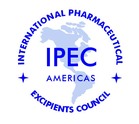IPEC Develops Best Practices Guide for the Safety Evaluation of Pharmaceutical Excipients
Tuesday, July 27th - 12pm (Noon) EDT
This presentation is intended to provide an overview of an updated IPEC guide considered to be a best practice guideline for “novel” materials not previously used in approved drug products. The International Pharmaceutical Excipients Council (IPEC) is an international industry association representing excipient manufacturers, distributors and end-users. Based on recent advances in formulation technology, which have increased the need for new, enhanced materials to improve drug delivery, IPEC has updated their 1996 IPEC Excipient Safety Assessment Guide to align with current regulatory guidelines and toxicological initiatives appropriate for pharmaceutical excipients.
The guide provides recommended safety testing, based upon the best currently available toxicological science and includes safety assessment options for different types of excipients, guidance on developing adequate/sufficient data to support customer filings, options for toxicological testing for excipient used in medicinal products, and types of information recommended to support bridging justifications. Additionally, the guide introduces new programs, such as Tox21, EU-ToxRisk, and The European Partnership for Alternative Approaches to Animal Testing, which are exploring new methodologies for safety assessment and include information related to these potential alternative methodologies for evaluating the safety of an excipient. As an international safety assessment guide for excipients, it does not specify legal requirements or apply to particular characteristics of all excipients.
The guide provides recommended safety testing, based upon the best currently available toxicological science and includes safety assessment options for different types of excipients, guidance on developing adequate/sufficient data to support customer filings, options for toxicological testing for excipient used in medicinal products, and types of information recommended to support bridging justifications. Additionally, the guide introduces new programs, such as Tox21, EU-ToxRisk, and The European Partnership for Alternative Approaches to Animal Testing, which are exploring new methodologies for safety assessment and include information related to these potential alternative methodologies for evaluating the safety of an excipient. As an international safety assessment guide for excipients, it does not specify legal requirements or apply to particular characteristics of all excipients.

